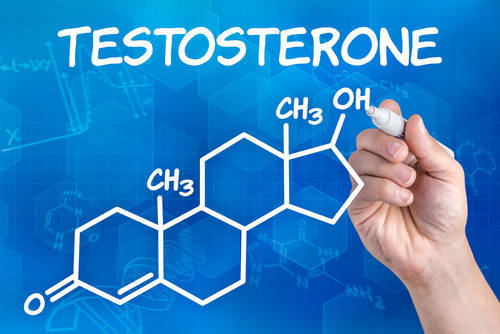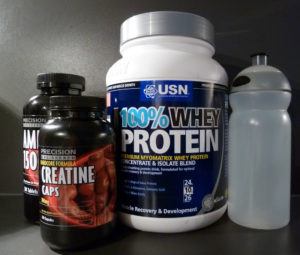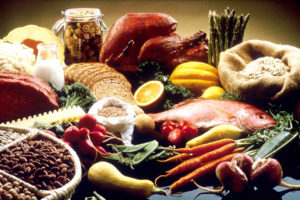Everything You Need to Know About Testosterone and Low Testosterone

Low Testosterone is an ongoing problem of modern male society. The problem has been attributed to higher stress levels and sedentary lifestyles. This has prompted a go-to solution for such a growing problem. It not only affects the general welfare of the males in general but rather how society treats such an ongoing threat to society.
In this article, we are going to shed some light on what really makes up this miracle substance of male dominance – Testosterone. We will also touch on topics such as its creation, how it’s used in medicine, and common Myths and Misconceptions surrounding the hormone.
Contents
What is Testosterone?
 Testosterone is a hormone which is a chemical messenger that is responsible for the development of male secondary sexual characteristics. Testosterone is a type of steroid produced primarily by the gonads alternatively called the testes or testicles in males from special cells called the Leydig cells located within the male sex organ.
Testosterone is a hormone which is a chemical messenger that is responsible for the development of male secondary sexual characteristics. Testosterone is a type of steroid produced primarily by the gonads alternatively called the testes or testicles in males from special cells called the Leydig cells located within the male sex organ.
Without adequate testosterone, men become infertile. This is because the process involved in spermatogenesis or the growth and development of mature sperm requires testosterone.
Testosterone is thought to help regulate a number of other functions aside from assisting in sperm production in men which includes:
- Regulating Sex drive
- Development of Bone mass
- Fat Regulation and Fat Distribution
- Maintaining Muscle Size and Strength
- Production of Red Blood Cells in the Bone Marrow
- Promotes competitiveness and boost self-esteem
The production of the hormone peaks around the age of adolescence and starts to continually decline as they age. Andropause also colloquially known as male menopause occurs because of low testosterone which causes males to experience menopause-like signs and symptoms.
It is also a misconception that only males create this hormone. In reality, both men and women produce the hormone in varying quantities with males producing it more. The hormone also reacts differently in men and in women. In men, it produces the secondary sexual characteristics as well as other defining features.
In women, testosterone helps in controlling fat content in the body, muscle mass, oil production in the skin, and even in preventing bone loss.
How is it Created
Testosterone is primarily used to regulate processes in the body. As a hormone, it is created in large amounts in the gonads and a little percentage in the adrenals. The creation of the hormone is triggered by the release of gonadotropin-releasing hormone which is secreted by the hypothalamus.
The hormone then makes its way to the pituitary gland where it starts producing two hormones. This hormone are the follicle-stimulating hormone (FSH) and luteinizing hormone (LH). These hormones are then transported through the bloodstream and into the testicles.
The follicle-stimulating hormone (FSH) then starts the process for producing sperm cells. The luteinizing hormone (LH) then activates the Leydig cells in the testicles to start producing testosterone. The Leydig cells then start changing cholesterol into testosterone in a complex process which they obtain through the bloodstream.
If there is not enough cholesterol in the blood. The testicles can produce a fair amount which is then absorbed by the Leydig cells and converted into testosterone.
What is Low Testosterone?
Maintaining Hormone Balance
Low Testosterone is a state wherein the body is not creating enough of the hormone. This oftentimes leads to a lot of complications primarily for men who need it more than women. Common effects of having low T includes the following:
- A waning desire for sex
- Erectile Dysfunction
- Sterility
Low Testosterone can be caused by either Lifestyle barriers, physical barriers, and dietary barriers which prohibit a balanced production of the hormone.
Lifestyle Barriers

Lifestyle choices can greatly impact the total amount of testosterone produced in the body. Stress, for example, can cause the body to maximize production of another steroid called cortisol instead of testosterone. Steroid hormones such as the sex hormones such as testosterone require a fair amount of cholesterol to be produced.
In stressful situations, the body sets aside a large chunk of it in producing cortisol. Cortisol helps prevent the body from burning out too much and regulates body function so only the important tasks are prioritized. This means reproductive functions which are closely tied with testosterone are prioritized less. Series of high cortisol levels in the blood have been known to lower sperm count and overall testosterone production.
Lack of exercise, smoking, alcohol and substance abuse can also lead to low testosterone production as such activities often causes more problems for the body primarily in disposing of waste materials.
Physical Barriers
 Physical or Genetic defects to the gonads either through birth or through an accident will often leave a person lacking the necessary hormone. In such cases, sufferers are subjective to continuous hormone therapy to prevent the negative effects from surfacing. It is usually a physician who will decide whether or not you will be subjected to the therapy or not.
Physical or Genetic defects to the gonads either through birth or through an accident will often leave a person lacking the necessary hormone. In such cases, sufferers are subjective to continuous hormone therapy to prevent the negative effects from surfacing. It is usually a physician who will decide whether or not you will be subjected to the therapy or not.
There are certain cases wherein the damage of the organ can is attributed to suffering a severe form of a disease, bacterial infection, tumor, parasites and even cancer treatment. Even prolonged exposure to radiation can cause damage to the normal function of the organ preventing it from producing the hormone or even causing it to lack the necessary precursors needed for its production.
Dietary Barriers
 Certain diets have a negative effect on the production of the hormone. Research shows that low testosterone can result from lacking necessary nutrients in the body such as zinc. Zinc is a necessary component for both enzyme production necessary to facilitate the activation of the cells in the testes. Another necessary component for testosterone production is cholesterol.
Certain diets have a negative effect on the production of the hormone. Research shows that low testosterone can result from lacking necessary nutrients in the body such as zinc. Zinc is a necessary component for both enzyme production necessary to facilitate the activation of the cells in the testes. Another necessary component for testosterone production is cholesterol.
Cholesterol is needed in steroid hormone productions which include adrenal hormones, the sex hormones, and cortisol. Having too little of the necessary nutrients oftentimes leads to low testosterone production. Prolonged withdrawal can lead to severe complications since testosterone is a necessary hormone responsible for a lot of body functions.
Testosterone as Medicine
Testosterone Application
 The following methods have been used for various situations to introduce testosterone in the body. One of the most popular being tablets and pills. Other methods such as gels and patches are also becoming more available. Originally testosterone was popularly introduced using injections since it had a high absorption rate compared to other methods.
The following methods have been used for various situations to introduce testosterone in the body. One of the most popular being tablets and pills. Other methods such as gels and patches are also becoming more available. Originally testosterone was popularly introduced using injections since it had a high absorption rate compared to other methods.
Since medical science has improved other methods have surfaced such as gels and creams to dermal patches. Tablets and pills still remain the most popular method due to its compact size and easy storage. Aside from gels, patches, injections, tablets, and pills other methods have also been introduced such as powders and oral applications. Although they aren’t as popular as the ones listed below.
- Gels – Testosterone gel is just one of the many types of medications available and prescribed for cases of Low T. The gel is designed for men who prefer the product over patches and injections. Just like dermal patches, it is applied topically on a daily basis.
- Patches – It is a medicated patch which contains testosterone which is absorbed through the skin slowly over time. It is applied topically on a daily basis.
- Injections – Injections were once the preferred method of introducing the substance before the advent of tablets and pills became popular.
- Tablets and Pills – is a method of providing testosterone using slow release vessel which slowly provides the substance over time, it is growing in popularity especially among people who don’t like the idea of injections.
Hormone Replacement Therapy
Hormone replacement therapy can be a blessing and a curse. It all boils down to how you use this wonder of medicine in combating low T levels in the blood. Testosterone therapy just like any other forms of therapy is something which needs to be monitored on a regular basis.
 Testosterone therapy is known to help reverse the effects of hypogonadism, but the mechanisms involved in the therapy is uncleared whether it would have any benefit for healthy older men.
Testosterone therapy is known to help reverse the effects of hypogonadism, but the mechanisms involved in the therapy is uncleared whether it would have any benefit for healthy older men.
The therapy has been known to help aging men and those who suffer from low T feel younger and more vigorous. Although there’s only a few research which has studied the effects of testosterone therapy on aging men who otherwise have healthy testosterone levels.
Studies also revealed mixed results when it comes to that problem. In one study healthy men who took testosterone medications increased in muscle mass but didn’t improve in muscle strength.
Things to Consider
While testosterone therapy proposes to having some great positive effects. It also involves various risks which include:
- Contributing to cause sleep apnea which is a serious sleeping disorder which has been known to cause death as it affects the breathing cycle.
- It can cause acne or other skin reactions such as allergies and eczema.
- Can stimulate noncancerous benign prostatic hyperplasia and developing the growth of possible existing prostate cancer.
- Can enlarge breasts
- It also has a tendency to limit sperm production or cause the testicles to shrink.
- It can increase the risk of developing a blood clot forming in a deep vein a condition known as deep vein thrombosis, which when broken loose can travel through your bloodstream and lodge in your lungs, which may block blood flow causing pulmonary embolism.
In addition, testosterone therapy can also cause unknown side effects which differ from person to person. So, before deciding to start testosterone therapy to alleviate the problems of low T. Always consult your physician first. Alternatively, having a full physical is highly recommended in to prevent any damage arising from the use of the therapy.
Myths and Misconceptions
Are Testosterone Boosters and Testosterone Products Illegal?
No, they are not illegal but can only be dispensed through a prescription. It’s however, a controlled substance which means distribution might be different for each state and how the prescription is provided. Testosterone along with anabolic steroids which are generally known as performance enhancing drugs are currently banned from competitive sports. This means that it can lead to serious problems for athletes which can be light as a suspension or as harsh as a permanent ban if they are found out to be taking the substance.
Can Testosterone Influence my Mental State?
Yes, it is the more reason you should first seek out medical advice. This is so you can get an adequate dosage which would at a certain degree lower the influence of the side effect. Changes in mood and behavior are common side effects of testosterone and are easily controllable. It becomes less and less noticeable as you gain tolerance to the substance.
Is it Possible to overdose from Testosterone?
Yes, It should be taken in moderation. There is a reason why the body doesn’t overproduce the hormone. This is to make sure the body can function properly. In extreme cases, overdose from testosterone has been known to cause death. If you suspect someone or you are suffering from a testosterone overdose, contact your healthcare provider or poison control center for immediate treatment.
Are Testosterone products only for Bodybuilders and Athletes?
It is a Big “No”, testosterone products are gaining popularity nowadays due to the rise of men in their twenties who suffer from symptoms of low testosterone. The misconception arose when athletes and bodybuilders use testosterone to improve their muscle definition and performance. This widespread use has made steroid and testosterone boosters classified as performance boosters. This oftentimes confuses people into thinking both the banned steroid drugs are one and the same with testosterone.
Is it safe to take Testosterone products?
Testosterone just like any hormone products are pretty much safe to consume. It is however as safe as you make it depending on whether or not the practice of safety is established. First and foremost the harmful effects of testosterone are commonly triggered when the adequate dosage or method of transfer is not carefully monitored or observed. Complications also arise if you take testosterone with other conflicting medications or if you are allergic to it. Always communicate first with a healthcare professional before you start taking any testosterone or any other hormone products.
